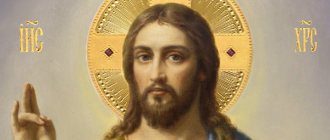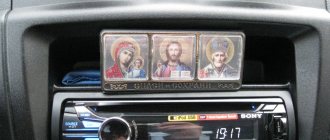The theme of prayer in the lyrics
The most amazing property of a lyrical work is its ability to penetrate the reader’s soul and awaken, evoke in it the deepest, most diverse strong feelings.
One of these feelings is trust in God, faith in him and a sense of his existence. Often in the process of studying lyrical works, the following types of lyrics are distinguished:
- landscape
- love
- philosophical
- prayer room
The prayer lyrics reflect the spiritual side of the life of its authors. And this experience of the poet’s spiritual life, which he captured in his works, can be used by modern readers who experience the so-called “spiritual thirst” and who strive for spiritual improvement and self-knowledge.
Almost every Russian poet has poems that touch on the topic of prayer. These poems can rightfully be called the pearls of Russian spiritual poetry, because they have the ability to heal human souls that are exhausted and tormented by constant everyday adversities.
Are you an expert in this subject area? We invite you to become the author of the Directory Working Conditions
A distinctive feature of Russian people of past centuries is piety, as evidenced by folk proverbs. Through prayer, a person is united with God, prayer strengthens a person’s spirit, and he has the strength to overcome the difficulties and adversities that befall him. A person constantly turns to prayer, which is a source of strength and wisdom. The memory of prayer could not be eradicated even after decades of atheism. The appeal to prayer has been preserved in speech etiquette and language.
Poems - Prayer heard in a dream
Love with sacred grace, God makes the soul brighter. Let us, through prayer, brothers, glorify the Creator of everything and us people.
Our mind is weak in the cell of the body, It languishes, serving the flesh in us. Only in faith, having become strong and courageous, will the soul take over the flesh.
Arise, you who suffer in spirit, Wake up, you who sleep from dreams. Listen with your soul, not with your ear, to the Creator - the Founder of the Foundations.
Without faith, there is no power in prayer, and there is no Holy Spirit in it. She is a dull sound without light, And she will not save people.
Prayer in the works of A. S. Pushkin
As for prayer in the works of Russian poets, the lyrics of A. S. Pushkin can be cited as an example. In his youth, the poet suffered from a feeling of unbelief, but in his mature years, faith in God matured in his soul. This was largely facilitated by his exile in Mikhailovskaya, where, far from secular entertainment, the poet had enough time to look into his soul, into the soul of the Russian people. During this period, the poet did a lot of self-education and self-improvement.
Finished works on a similar topic
Coursework Prayer in Russian poetry 440 ₽ Essay Prayer in Russian poetry 240 ₽ Examination Prayer in Russian poetry 230 ₽
Receive completed work or specialist advice on your educational project Find out the cost
It was in Mikhailovsky exile that the poet first entered into direct communication with the church. The poet observed the close spiritual and moral connection of the people with the Svyatogorsk Monastery. Pushkin read a lot of ancient chronicles and Karamzin. All this contributed to his awareness of the greatest spiritual influence that faith in God had on the people. Reading the lives of the saints captivates the poet, and the Gospel deeply touched his soul. And from that moment on, he sees true poetry in prayer and in the Gospel. Then he will write a poetic adaptation of the most important prayer of Christians, “Our Father,” where he very accurately conveyed the words of the prayer.
And in his poem “Desert Fathers and Immaculate Wives,” Pushkin admits that his favorite prayer is the Lenten prayer, which is read during Lent.
This prayer inspired the poet to write one of his best works.
Note 1
Perhaps Pushkin saw similarities between himself and the hermit glorified in the work. The basis for this assumption is the poem “Memory,” where the poet expresses the moral torment of a person who suffers heavily from the burden of committed sins.
In the lyrical hero of this poem, the reader recognizes A.S. Pushkin himself. the poet, like the hero of this work, often worried at night about the sins he had committed.
In the poem “Desert Fathers and Immaculate Wives,” in the first part the poet talks about prayer. The second part of the poem is the prayer itself. The lyrical hero of this work admits that he knows many prayers that allow him to overcome everyday difficulties, but the one closest to him is the Lenten prayer, which mentions the sins from which he would like to be freed.
The hero of the poem asks God for help to see his own sins. He prays for humility, love, chastity, patience, which are Christian virtues. Without these virtues it is impossible to even imagine the spiritual growth of a person. love is a reverent feeling for your neighbor, a reverent attitude towards God.
It is this poem, which was written in 1836, that reflects the spiritual state of A.S. Pushkin at that time. It is evidence that Christian ideals became a moral guideline for the poet. Before his death, the poet confessed his sins, took communion, and blessed his children.
Poems on the topic “Prayer”
Forgive me, Lord, we are to blame for not teaching our children how to live. They made idols for themselves, not thinking that we will reap it.
They are from us, as if behind a blank wall. They won’t reach souls, they won’t break through. They should hurry now - After all, the heat of difficult trials is near,
Events that we know from the Scriptures: The last merciless beast will be. How important is what we do now, While repentance is still possible.
But we cannot force our children to lead them There, where the door is open to heaven. They don’t want spiritual bread, They can’t take their eyes off their smartphone.
Deceived, cruelly deceived. But they don’t want to hear reason. They have a peculiar look at everything, as if their ears and eyes were unhealthy.
An invisible network is spread out, And we undoubtedly missed something And we let our children into this network. Can we now have peace?
In prayer for the perishing children, we again ask for protection for them, so that they can be hidden in the Lord, away from all harmful undertakings.
Forgive me, Lord, loving our children, We still ask for mercy. We are very afraid of the pain of punishment, But how can they find You without that?!
When everything comes easily out of their hands, And the fear of God does not know the heart, Will the soul even open a crack in the door, To suddenly stop while running?
We, praying for the salvation of children, Perhaps we need to change our efforts, And start everything with a prayer of repentance, That we gave the children the freedom to fall into the mud.
I came for happiness.
I came for happiness, here are my palms... God, have mercy, share a little... It is very important for people to wake up with the thought that hope is alive, that one should not give up...
The line for happiness is crowded, But there are many more of those who are afraid to join this line... Only they, too, will need happiness...
I will distribute happiness in grains to passers-by... To those close and not so close, to redheads and blondes, to the poor and rich, to mechanics, to poets... There are simply no people unworthy of happiness in the world...
After all, when you meet kind smiles, You immediately forget about your problems... And when someone warms your soul, This means that happiness still exists...
You need to look around, you need to take a closer look... Maybe in someone’s heart, fortunately, there is a hidden door... Just don’t be afraid to knock on that door... It’s better not to resist love...
And people crowded, took up space... Someone wants money, someone wants to become a bride... For some, happiness is sharing gossip... The queue is long... Faces keep flashing by...
I came for happiness, here are my palms... I see, it’s empty... The birds were pecking at the crumbs... But with a wise smile, God answered me, That the smile of loved ones is happiness too...
Lord, I often repeat the phrase: “Forgive me, forgive me again.” And You never pushed me away, And my sin was covered by grace. You give me Your holy water, so that I can distribute it to people. Forgive me when, taking advantage of my freedom, I was wasteful with that water. Forgive me when I sometimes thank You, Lord, with unclean lips. Forgive me when I speak to You insincerely with thoughtless words. Forgive me, Lord, that my life, probably, Sometimes only looks holy. Forgive me when you see the hypocrisy that I hide, perhaps from myself. Forgive me when there is not just a wound in the soul, But a dark, complete emptiness, And it doesn’t even seem strange anymore. There is a muteness of the Holy Spirit in me. We don't always celebrate victories here, Sometimes we go through a streak of losses, At the end of such a dark tunnel, Please open the door to the light for me.
Source: https://millionstatusov.ru/stihi/molitva.html
Poems - prayers of famous Russian poets: Lermontov, Blok, Tsvetaeva.
There is a grace-filled power in the consonance of living words, and an incomprehensible, holy charm breathes in them.
Doubt is far away from the soul, like a burden, and you believe and cry, And so easily, easily.
I call you, mortal comrade! Come out! Make way, earth! On the ashes of thunderous fires I stand, quenching my life.
Come, confess my sleep, wipe the sacraments and wipe your lips. Satisfy me with the quiet victory of the scattered scarlet dawn.
He stands high above us - A thin profile in the pale dawn. Behind his shoulders, behind his shoulders - All the fields and forests are in silver.
So he stands in a silver circle, Majestic, merciful and strict. On his pale, pure brow We read that the time is near.
I do not pray for my deserted soul, For the soul of a wanderer in a rootless world; But I want to hand over the innocent maiden to the warm intercessor of the cold world.
Surround a worthy soul with happiness; Give her companions, full of attention, Bright youth, calm old age, Peace of hope for a kind heart.
Will the time approach the farewell hour? Whether in a noisy morning, or in a silent night - You went to the sad bed of the Best Angel to receive a beautiful soul.
But extinguish this wonderful flame, the all-burning fire, turn my heart into stone, stop my hungry gaze; Let me, creator, free myself from the terrible thirst for song. Then I will turn to you again on the narrow path of salvation.
Winter dusk touches the roses on the wallpaper and bright coals. Send him a brighter evening, warmer than me, Christ!
I will hold back both a smile and a sigh, I will not clasp my hands with a curse, But just - give him happiness, Oh, give him happiness, God!
You are wise, You will not say strictly: “Be patient, the time is not over yet.” You yourself gave me too much! I crave all the roads at once!
I want everything: with the soul of a gypsy, to go to the robbery to the songs, to suffer for everyone to the sound of the organ and to rush into battle like an Amazon;
Fortune telling by the stars in the black tower, Leading the children forward through the shadows. So that yesterday would be a legend, So that every day would be madness!
I love the cross, and silk, and helmets, My soul traces moments. You gave me a childhood - better than a fairy tale And give me death - at the age of seventeen!
Forever - tomorrow. At the Reshotka Every day and hour a clear voice praises One of us.
The air is full of sighing, Thunderous hopes, The heights are burning from the non-closure of Inflamed eyelids.
The pink angel will point out, Say: “Here she is: Lowering beads, knitting into threads - Eternal Spring.”
In a bright moment we will hear the sounds of retreating storms. Let's silently tie our hands together and fly off into the azure.
Source: https://docfish.ru/documents/stihi-molitva-russkie-poet-lermontov-blok-cvetaeva-best-child-poem
Means of expression
Epithets - the power of grace, living words, wonderful prayer, holy loveliness - make the sound and perception of the poem soft, lively, and imaginative. In a small poem there are quite a lot of tropes and other means of expression. The last words, describing the state of the soul, which has found joy and peace, sound so mysterious thanks to the repetition: “and so easily, easily...”
Metaphors : “the power of words”, “sadness is crowded”, “holy loveliness breathes... in them”. The last metaphor is especially beautiful: the author endows the words of prayer with a soul, they live and breathe, that is, they are “alive” in every sense of the word.
Source: https://obrazovaka.ru/analiz-stihotvoreniya/lermontov/molitva.html
Brief Analysis
Before reading this analysis, we recommend that you read the poem In a difficult moment of life.
History of creation - the poem was written during the period of Lermontov’s acquaintance with Princess Shcherbatova, who had a significant influence on his views, literary and spiritual.
The theme is the power of prayer in human life.
The composition is three stanzas united by a lyrical monologue of the hero.
Genre – lyrical monologue, philosophical orientation.
The poetic meter is iambic trimeter, cross rhyme, rich feminine rhyme.
Metaphors - “the power of words”, “sadness is crowded”, “holy beauty is breathing”.
Epithets – “gracious power”, “living words”, “wonderful prayer”, “holy charm”.
Text of the book “Prayers. Favorites"
Prayers: favorites
Compilation, preface and notes by V. L. Korovin
Development of the “Golden Series of Poetry” series by A. Novikov
The cover design uses reproductions of paintings: “Two Girls Praying” (?) by the artist Emile Mounier (1840–1895), “Christ in the Desert” (1872) by the artist Ivan Kramskoy (1837–1887), “Alma Mater” (?) by the artist Virginia Demont-Breton (1859–1935)
Development of the “World Library of Poetry” series by I. Saukov
The cover design uses a reproduction of the painting “The Praying Madonna” by the artist Giovanni Sassoferrato (1609–1685)
From the compiler
In the Long Christian Catechism, St. Philaret (Drozdov), Metropolitan of Moscow, first published in 1823, to the question “What is prayer?” The following answer was given: “The elevation of the mind and heart to God, which is manifested by a person’s reverent word to God.” That is, prayer is not a genre of literature, but a special disposition of the mind and heart, which is only “revealed” in the word. The publican in the Gospel parable was saved by a short and simple prayer: “God! be merciful to me, a sinner! (Luke 18:13). He was acquitted, however, not for brevity and simplicity, but for his repentance, self-sacrifice, faith and hope, revealed in these few words.
Prayer is also defined as a conversation between a person and God (“Everyone who prays talks with God...” wrote St. John Chrysostom). It is precisely this understanding of it that unites the poems collected in this book by Russian poets of different times - from the 17th to the beginning of the 20th century. These are mainly original poems (many are entitled “Prayer”), and besides them – transcriptions of prayers accepted in the Orthodox Church. Almost all of them belong to secular authors. In most cases, being Orthodox believers, in their poems they often appeal to the authority of the Church, but still speak on their own behalf, and not on its behalf. What poets think about prayer, what they turn to God with, what disposition of mind and heart they reveal - readers have the right to judge this for themselves.
This publication is an abridged version of the collection published in the “Library of World Literature” series in 2015, which included works by 130 Russian poets[1]1
Prayers of Russian poets / Comp., preface. and note. V. L. Korovin. M.: Eksmo Publishing House, 2015. 640 p. (Library of World Literature).
[Close]. The reductions affected mainly large poems, and the number of authors also decreased. Excluded, for example, are almost all arrangements of psalms, which constitute the most important part of the poetic heritage of the 17th–18th centuries (and of some poets of Pushkin’s time). At the same time, some new texts have been introduced that in some way complement the named publication.
The new collection differs from the previous one, which is more complete, not only in composition, but also in composition: a number of works are included in the “Additions” section, consisting of two parts. The first part contains all the poetic transcriptions and interpretations of the main Christian prayer - the Lord's Prayer “Our Father”. The second part contains poetic transcriptions of the Great Penitential Canon of St. Andrew of Crete, which is read during Lent, and the Easter Canon of St. John of Damascus, sung at Easter Matins on the day of the Holy Resurrection of Christ.
The publication is supplied with notes. At the end there is an alphabetical index of authors whose works are included in this collection.
V. L. Korovin
Prayers of Russian poets
Simeon of Polotsk (1629–1680)
<From the “helicopter city of many colors”>
Prayer
Pray for yourself fulfills a need, pray for your neighbors expresses love.
2.
If you want to beg God, strive to preserve this in prayer: Be in the camp of His grace and do not stop trusting in God. May you add humility to this and maintain long-suffering. Listen diligently, ask for good things, keep all this, and pray to God.
7.
Man is formed from flesh and spirit, for you pray with soul and body. When the mind begins to think inwardly, let the body speak with a voice to God. The soul needs forgiveness of sins, grace, light and glorification. The flesh is health, food and governance, and both are the essence of prayer. It is good to pray to God in secret with your mind, but prayer with your mouth also has many benefits, for it arouses warmth in the mind itself, and creates a rational conversation with God.
8.
When the interlocutor prays to God, it happens that he asks for good, then he receives everything.
13.
In the morning, send a prayer to God, so that He Himself will be pleased to manage our affairs. In the evening we must pray, so that sins may be forgiven, even in the daytime we have done in word and deed, or in evil thoughts, and may the night grant us to live in health, not tempted by the demon of being.
38.
You don’t need to say a lot in prayer, but sigh, groan, and cry a lot.
40.
Whoever begins to live every day from prayer lays the foundation of good deeds, On him the house of good deeds is built high, and the divine eye kindly looks upon her.
51.
Whenever you see someone who doesn’t love prayers, doesn’t go to church to give praise to God, The mind, because the Spirit of the Lord does not rest in it, Who drives out laziness, arouses to prayers, But the evil spirit there induces a vile dream, from the mother of laziness the soul gives birth to death.
54.
In the garden, the tree needs to be watered so that it can bear good fruit. Otherwise, the tree does not bear good fruits; due to lack of water, it dries up on its own. Thus, in the Church, people need to pour out a lot of prayers to the Lord God. Then the soul drinks like water, while the mind prays with warm tears. From that watering she becomes fertile and gives birth to all kinds of goodness abundantly. Apart from the prayers of existence, there is barrenness, but I will say righteously: of course it is dead.
Prayer for sin
Prayer then becomes a sin towards God, when someone desires what is forbidden from Him, and whoever asks for evil things rejects blasphemy, for it is God who commits evil.
Work and Prayer
It is good to exercise our minds with thoughts of God, and also to apply our hands to labor. Martha was with Mary together, this thought of God, she showed her labor. Mary alone escaped from her labors when she listened to the word of Christ. Abiye, sister Maria is mournful, and she said it to Christ the Savior. And the general parable is the custom of broadcasting, praying and working, the Lord is ready to give.
2.
Rachel and Leah are sisters, bound together with one husband. Rachel signifies the vision, Leah reveals the working one. Rachel is beautiful, Leah is still fertile, and both are pleasing to her husband. Through Rachel, experience the thought of God redemptively; through Leah, think through fruitful labor. And combine both sisters in you, be in the thought of God and work. Thus, if you please Christ, you will remain in His devil forever.
<1678>
Dimitry of Rostov (1651–1709)
"My dear Jesus..."
My dearest Jesus, my sweetest heart, my only joy in sorrow. The words of my soul: I am yours, salvation, cleansing of sins and entry into heaven. It is good for me, God, to cleave to You, to hope for mercy from You. No one will help me in my troubles, a sinner, if not You, O all-merciful Jesus God! I want to be one with You. Let me always have You, Christ, in my heart. Deign to dwell in me, be good to me, do not disdain me, a sinner, unworthy. My stomach has disappeared in illness without You, God, You are my strength and health, You are my glory. I rejoice and rejoice in You, and in You, O God, I glory forever.
Between 1675 and 1681
Vasily Kirillovich Trediakovsky (1703–1769)
Sonnet
My God! Your destinies are full of righteousness! You deign to always be generous to us; But I am such an angry person before You that it is difficult for Your truth to forgive me. To her! my Lord! the sins that are content with me cannot relieve all the torments of You: You yourself seem to be not free in my bliss, and Your mercy wants to destroy me. Be it Your way, then when You are glorious, Tears are angry with me, my eyes are clearly shedding; In thunder; strike, it's time, disgusting, disgusting. I honor the reason that makes You so bitter; But what kind of place will you strike, Marvelous? Christ's blood generously covers all of me.
<1735>
Paraphrase of Jonah's prayer
I cried out in my sorrow.
Jonah chapter 2
In sorrow to my Lord I cried out from my heart, groaning; My God heard me in this sorrow, remembering mercy. Did you hear, oh! God, my voice and cry from the beast’s belly; Although he was cast into the depths by anger, Although the rivers flooded there at once, Yet he did not despise the bitter roar. All the heights passed over me, All the depths accepted me, All the wideness went around, The abyss of darkness became an opening; Mountains of water covered everything, The noise of the currents deafened the terrible, The powerful appearance of evil appeared to everyone And the wet abysses from below. ABOUT! since then I was unfortunate. I uttered this in sorrow: “Those who have been cast aside, I am now found, And all my groaning is Here from Your eyes in the valley; Moreover, I will not see Your holy Temple alive: Nor is there any shining light in it; The water rushed into the soul; Behold in the abyss is death for me, and not good! My head has certainly dived into the cleft of the mountains; The gaze descended into the underground places, The Earth closed its rivet, having laid down its faith forever. ABOUT! God, may the belly be saved and carried to the top; May streams of tears flow down to You, May your spirit not be shaken in the abyss.” When my great soul was languishing in this suffering, then Your mercy, Lord, in time entered into my memory: You yourself heeded my prayer; I reached the Temple to Your throne; You accepted Your destinies according to your will in goodness; He elevated me and did not betray me. Those who keep lies and vanity, neglect gratitude; For this they will receive shame and execution for flattering insidiousness. But I, with a voice of praise, And in confession to God I will repay, saved, a great sacrifice, Which is the heart, not the oxen, And all my vow without forgery.
<1752>
Mikhail Vasilievich Lomonosov (1711–1765)
Morning Meditation on God's Majesty
Already the beautiful luminary has spread its brilliance across the earth and revealed the works of God: My spirit, listen with joy; Marveling at the clear rays, Imagine what the Creator himself is like! If only it were possible for mortals to fly so high, so that our eye could approach the mortal sun and gaze, then the eternally burning Ocean would open from all countries. There the fiery shafts strive and do not find the shores; There fiery whirlwinds spin, Fighting for many centuries; There the stones boil like water, the burning rains there make noise. This terrible mass is like a single spark before You. Oh, since You, God, have lit the bright lamp for our daily affairs, What You commanded us to do! The fields, hillocks, seas and forests were freed from the gloomy night and opened to our gaze, filled with your miracles. There every flesh cries out: Great is our Creator, the Lord! The light of day shines only on the surface of bodies; But Your gaze penetrates into the abyss, Not knowing any limits. From the lightness of Your eyes the joy of all creation flows. Creator! To me covered in darkness, spread out the rays of wisdom and always teach me to do anything before You, and looking at Your creation, praise You, immortal King.
1743 (?)
Alexander Petrovich Sumarokov (1717–1777)
Prayer II[2]2
“Prayer I. Our Father” in the present. The collection is placed below - in the section “Poetic transcriptions and interpretations of the Lord’s Prayer.”
[Close]
God of heaven and earth, listen to my complaint, And save me with your strong hand! I am driven without defense Day and night from all sides, And my soul no longer has any peace. I suffer, I suffer, I groan; All cases are directed towards me in their hot rage. Like a man in chains, living a bitter life, He suffers every hour, I suffer likewise. I am in constant troubles; Thus the helmsman suffers on the waters, as menacing waves splash into the ship. And when at noon the eye sees only one darkness and one light from the lightning, which shine in the darkness.
1759
Prayer III
Do not tolerate, O God, the authorities, the lawless people who cause misfortunes only by their strength! As much as malice is sublime, so much is truth terrifying. The days of the century were not given for this, So that we could destroy each other; You ordered man to love, Creator: Whoever is famous for his titles is equal to the last before You. The loud title is the creator of the often corrupted light: Only one virtue gives an advantage: And it is more precious than anything else, Protect it, O God!
1759
Prayer IV
To You, O my God! I now cry out and proclaim my sorrow to You today! I, deprived of help, resort to You and put my hope only in You. Penetrate the heavens, constant groan! Take off, laments, before the heavenly throne. My creator! I lift up both my eyes and my hands to You: Look and soften my unbearable torments! I’m sad day and night, I’m always sighing, I never see peace of mind. Calculate my torment with my sigh! My whole mind is scattered, clear thoughts have disappeared, every minute brings me new pain, melancholy, constricting my chest, sucks blood from my heart; That hour a new misfortune threatens me, Another acts and strikes me with it; Like a current of water, wave after wave plays, And sorrow after sorrow plays with me. No matter what I look at, everything frightens my soul, And only hope in You consoles me.
1759
Prayer V
Just heaven, look, show me mercy and analyze all my actions! Throughout my life, every minute I am oppressed, persecuted and suffer, Many times I hunger and thirst. Or was I born into the world to be persecuted without knowing why, and not to touch anyone with my groan? Melancholy possesses me day and night, Like a snake, it eats my heart, My heart weeps languidly all the time. Or will there be no end to the misfortunes? I cry to the throne of the Creator: Soften, O God, evil hearts!
1759
Prayer VI
which is also a prayer according to the first letters
God, be merciful to me: You have my shield, my protection, May people hear this, And accept my words. Be help and support, Avert my troubles: I want to live without discord, If I get traces. Discord is disgusting to me And I won’t go into the swearing and noise; If only my heart would be sad and my thoughts would not upset me. I will not let passion rule me, You are my hope, And the vices of passion, children, I see with disgust. Terrible Judge of the universe, Father merciful to us, Creator of the corruptible creation, Your scepter is straight and Your temple is holy! Eyes from heaven to earth, O God, you send far away; I see from below, I will listen to Your Truth in everything. O omnipotent Heavenly King, Have mercy on me, preserving my spirit, And for the heart of my tight chest, send a ray to me too! You quench my passions and drive away my sorrows; Yasna's misfortunes tormented me and darkened my days.
1759
I cry and sob
I cry and weep, I tear and suffer, I just remember the hour of death and when I see a man who has lost his voice, who has lost his image at the end of time, in a terrible coffin. The minds have not comprehended, O God, the secrets of this, That by the Almighty will we were created by the hand of the Divine to such an evil fate. But, Great God! You are both generous and right: No matter how terrible this mortal charter is to us, the Door is the minute of death to eternal peace.
<1760>
Worldwide fame
Vegetated from man, Produced according to the highest statute, Who gave birth to the world, Born before the age, The gateway to heaven and the end of wrath, According to the praise of Mary the Virgin, The ethereal singing of every minute appearance And for mortals there is always a cover and a strong shield. This is heaven, this is the temple of the Creator of all creation, God, The end of hostility, peace and the road to the kingdom: With Her we will establish faith in us, And with Her Son we will block Gehenna; Be brave, be brave, people of God; This Champion and I will certainly win: If you are strong, O God, then be merciful to us.
<1774>
Mikhail Matveevich Kheraskov (1733–1807)
Ode to God
O You, to whom the One Universe seems like a palace; By whom all nature is animated; God, incomprehensible in mysteries! An unenlightened mind cannot reach Your wondrous and sacred temple, A sinner cannot reach: For those the trumpet of Zion blows, Who loves the truth, who loves their neighbors And dares to follow You on the path. Wherever our mind flies and our imagination soars. The Creator dwells from above, And there He burns in glory. Seated on a fiery throne. Through the solid heavens from above, Through the shine of the day, through the darkness of the night, Through the whirlwinds that carry worlds around, Through the clouds, the thundering clouds, You see, God! globe. This grain of sand, immersed in the vast depths of the world, is surrounded by everlasting darkness, like a spark visible to You. Born of you from eternity, You see a man on it; With a trembling heart you see in him: You read his thoughts, And in spirit You dwell with him In this distant circle. You see daring thoughts, Like light clouds, striving to comprehend You; But God is incomprehensible to the minds! O mortal! The path to reaching God has been assigned to you: Look for it in your soul! Seek!.. but the passions were indignant, All our thoughts were covered in darkness, And God was hidden from our eyes. Not a star has yet shone, Nor has the ocean swayed; Fire, water and winds subsided; The beginning was not temporary; But the Most High himself shone and ruled the future fate; In an elemental mixture, the firmament, the seas and the land matured, Giving life to creatures, soul; The face of the sun glowed before Him. When the circles of centuries begin, When the light is created, He knew where the cedars would rise And where the blade of grass would grow; He knew all the mysteries of nature; He looked at all the animal generations that were, are and will be in the future; Without assigning order to things, He already knew their fate and could not have commanded them. As the sun illuminates the earth, so God illuminates the sun. The universe does not contain him; His palace is immeasurable; But everything lives by His inspiration; It blooms with a single wave, The Universe is moved by His finger: He speaks - and time will stop flowing; He speaks - and the sun will appear again, and light will be created again. But God loves His creation, Keeping order in this world; It will not destroy the dust without need, Not a drop of water, not a piece of grass in it. Whether the sea boils or the sun darkens, Everything strives for a better end; What seems disorder to us, serves for the benefit of the whole universe: But our mind, blinded in the wrath of God, appears there. In golden shining purple, the rising sun says: There is a God, the Ruler of things in the world, Who gives life to everything. His beautiful daughter, Nature, says for every nation: The Lord is one Father of all! The ethereal slender lyres, Boreas, thunder and zephyrs say: “Great! the Creator is incomprehensible!
<1777>, <1800>
Meditation on God
An incomprehensible Being, the Soul of the Universe, Light, Power - Divinity! Being invisible, You are eternal, unchangeable; We are dust, we are darkness, we are decay, but You alone are imperishable. What are you and where are you, Creator of the universe? You are everything, You are the beginning and end of all beings. Blessed Augustine, with a heavenly trumpet, called me to follow You everywhere; He, quickly accepting the sunflower guy, searched for you, searched, searched for you in all creation: searched for you on this earth; I was looking for You in the stars - Not there, not there - but in my heart! The Peruns are fiery, the elements in their struggle, Speaking to us, are voices about You; And suns and worlds, which cannot be counted, force us to think about You in sacred fear; The seas and the noise of stormy winds speak of You: But our mind does not comprehend You anywhere. You do not exist either in the sun or in the moon; These are the wise hands of Your creations alone. You do not exist in nature in a pleasant way, Neither in a poor hut, nor in temples, nor in wealth; All the delights are earth, metals are dust and ashes; So, my God! You exist only in pure hearts. But why, having loved dust and decay, Do We drive You away from our hearts with vices? Enchanted by worldly vanities, Are we being transformed from angels into brutes? What does this decay tell us, having forgotten You, to love? Why does temporality, not eternity, amuse us? The incomprehensibility and mystery of nature, Where the mind seeks traces of the wonderful Divinity; Where to our eyes is everything that is visible in the world, everything is wondrous, everything is perishable, and everything is incomprehensible! Are you broadcasting to us the glory of the Most High? What do you teach? - both you and I are nothing. No, no, you are not nothing; you clearly have numbers, from which it is convenient to derive the root of numbers; If we ourselves are similar to the Creator in some way, it is because we are comfortable imagining Him; From dust to flint, from midge to elephant, the universe is full of His wisdom. Whoever does not see God is poor and blind; When there is a creation, there must be a Creator; The world could not have appeared more beautiful by itself, It could not have been put together, it could not have been established, It could not have settled down with such wisdom; And that wisdom is... the incomprehensible God. Four times tell us about Him, the Queen of the stars, the moon, the shining sun during the day, the grain of sand and the mountain that spews fire, broadcasts everything to the Creator, but the mind does not comprehend; Our reason sees Him in all His nature; But He sees His works, but He Himself is hidden everywhere. Brave minds interpret God to me, But only lead me into new darkness from the former darkness; Only one shine is visible in a magnificent syllable; The mind speaks clearly about creatures, not about God. About Creator! You keep Yourself within Yourself, And you abhor our minds to understand Yourself. This great mystery is enough for me, That my heart moves through You in my chest. Will I understand God when I don’t understand, How I see, how I feel, how I take in air? But I already seem great to myself, That I think and sing, Creator, about You! Big and very small; Although gifted with meaning, it seems to me that I was created from perishable things; From the same substances from which the entire universe is wisely composed, but everything in its composition is perishable; However, the universe is God's palace; He lives in her in spirit - and so there is God in me! He is in me, and what can live without God? But am I worthy to be His ark? What a gloomy robe He is wrapped in! He is pure light, I am darkness; He is holy and I am wicked; Sin is in my heart, sin reigns in my blood; But God lives in me, so I am a palace of love! But is there only one voice of God acting in me? Or does the Lord act by omnipotent will in us? If His holy power acts in the soul, what kind of darkness in me extinguished the light of God? And who have I become, subjected to sins under the scepter? Oh! Man was created free in spirit! Having the rule of our feelings in mind, We have the power to turn towards light and darkness; We have the power to choose one of the two roads, To carnal sweets or leading to God; And in this the Lord’s generosity to us is visible, That the will to choose darkness and light has been given to us. Just as the Lord acts in the worlds with might, so we act within ourselves, having spirit and flesh; He created the worlds: I imitate God; I want - and I imagine thousands of worlds. He moves the universe, having prescribed order: Thus I move each of my compositions within myself. Inexhaustible love of the ocean! Perhaps man has merged with his Creator! If we fight enemies in the body of our souls, He promises to make us Gods in eternity; He promises to join us in heaven to the Divinity: Who is it that abhors our nature in this glory? All those who want to enslave the world, the elements abhor us in this glory; Having entered into disastrous alliances with each other, They plunge us into insoluble bonds; They seduce us with worldly vanity and with everything that is flattering for the thoughts and eyes. God has a foggy cover for our sake, But He is ready to reveal Himself to our hearts; If only we had not burned with the flame of sin, We would have long ago seen the Creator face to face; For a corrupted heart and mind, the Creator is not light: He is only darkness. But, God, my God! although You are hidden from us, the Earth and the sky speak to me about You; I see Your wisdom in a shaking blade of grass, In countless worlds, water in a drop and in a speck of dust; In the mind of my soul You have impressed Yourself; I wouldn’t exist if you weren’t there! The celestial flight of the planets and the suns and seas tell the creatures of all the Creator, the King; But You, O Creator! This whole universe itself and the Seal of the Sacrament are sealed for us; Having allowed yourself to be told to the heavens, You can comprehend Yourself... only Yourself!
<1797>
Answer
Expert tested
Analysis of M.Yu. Lermontov’s poem “Prayer”
Main topic:
Turning to God, asking for consolation and seeking protection.
Main thought:
In prayers, a person’s soul finds peace, repentance and sincere faith brings peace to the soul, protection from troubles and salvation from doubts.
Problems of the poem:
Philosophical lyrics, the clash of mental forces with the real, harsh world. The poet’s personal experiences in difficult times, confusion of the soul and the search for peace.
Poem idea:
Show the strength of a person’s faith. Without repenting of sins or asking for forgiveness, but through simple prayer, a person finds true faith in his heart, which protects him and gives him peace.
Main characters:
The lyrical hero is the author himself. The poem was set to music and performed as a romance.
Artistic means of expression:
Epithets: difficult moment of life, wonderful prayer, grace-filled power, incomprehensible, holy beauty, living words.
Comparisons: like a burden will roll off the soul.
Metaphors: sadness crowds into the heart, an incomprehensible, holy charm breathes in them.
Assonance is the repetition of vowel sounds to add melody, slow down and enhance the dynamics of the work.
Syntactic parallelism: And you believe and cry, And so easily.
Dynamics of the poem:
Rhythmic, due to the rhyme, the poem is increasing, from a slow tempo it moves up, on a sublime note there is a rise, which is facilitated by the stilted style of vocabulary. The first quatrain is chanted, slowed down with the help of assonance, conveys the church style of reading prayers. The second enhances the mood, in the third the spiritual uplift begins.
Size of the poem: iambic tetrameter and iambic trimeter, 12-stanza poem, three quatrains.
Rhyme: cross (lines 1-3, 2-4 rhyme), alternately masculine rhyme (stress on the last syllable) and feminine rhyme (stress on the penultimate syllable).
Source: https://znanija.com/task/20994484










